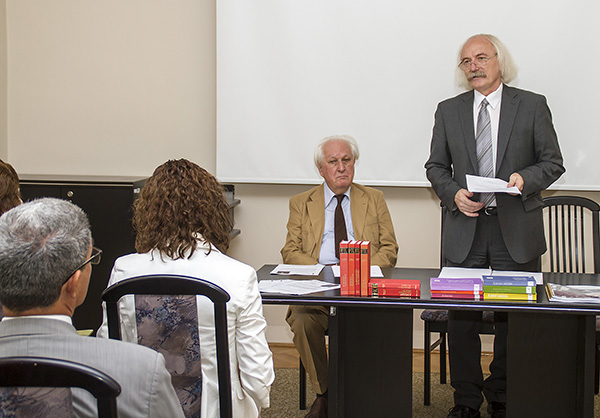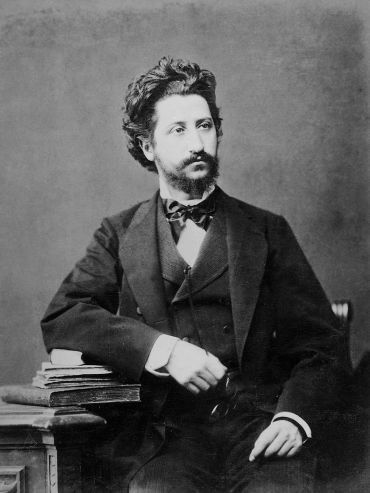 The Vámbéry Centennial Memorial Committee had a press conference about the planned programs of the Vámbéry Memorial Year in the Institute of History of the Research Centre for the Humanities of the Hungarian Academy of Sciences on June 18, 2013.
The Vámbéry Centennial Memorial Committee had a press conference about the planned programs of the Vámbéry Memorial Year in the Institute of History of the Research Centre for the Humanities of the Hungarian Academy of Sciences on June 18, 2013.
Ármin Vámbéry (1832–1913), a Hungarian orientalist, Turkologist and traveller died a hundred years ago. Academician György Hazai, his biographer praised his significance as a traveller, an ethnographer, a linguist, and as the founder of a new discipline, Turkology. Vámbéry went to Constantinople to study Turkish life and language, and his abilities gained for him an entrance in the Ottoman society. In Constantinople (1857–1863) he learned several languages and dialects of Asia Minor, in 1858 he published his first book, a German–Turkish dictionary, the only one of its kind available for many years. He travelled widely through the Middle East for several years. In 1864 he moved to England, where he was welcomed as an explorer-traveller. His book Travels in Central Asia, giving linguistic, ethnological, cultural and ethnographical description about the peoples of that region for the first time for the West, was also published in London.  Vámbéry also called the attention of politicians to the movements of Russia in Central Asia. His correspondence kept him in touch with most of the power centres of Europe. He was a professor of Oriental languages at the University of Budapest from 1865 to 1905, where he founded Turcology Studies in Hungary.
Vámbéry also called the attention of politicians to the movements of Russia in Central Asia. His correspondence kept him in touch with most of the power centres of Europe. He was a professor of Oriental languages at the University of Budapest from 1865 to 1905, where he founded Turcology Studies in Hungary.
Pál Fodor, acting director general of the Research Centre for the Humanities and the secretary of the Vámbéry Memorial Committee emphasized that this project is carried out in cooperation of several institutions, including the Hungarian Academy of Sciences, the Ministry of Human Resources, the Eötvös Loránd University (Budapest) and the Lilium Aurum Publishing House from Dunaszerdahely (Vámbéry’s birthplace). In order to organize and coordinate the programs, a Memorial Committee was created from orientalists, researchers and professors, chaired by academician Miklós Maróth. The programs will include an international conference in September on the different activities of Vámbéry, with internationally well-known lecturers, like Barbara Kellner-Heinkele and Ruth Bartholomä (Germany), Jacob Landau (Israel), Edward J. Lazzerini (USA), Mustafa Kaçalin (Turkey), György Hazai and István Vásáry (Hungary). The Oriental Collection of the Library of the Hungarian Academy of Sciences will organize an exhibition and compile a website about Vámbéry. A volume with a collection of scholarly essays about Vámbéry’s works will also be published. The Lilium Aurum Publishing House from Dunaszerdahely plans to publish two important works of Vámbéry in this centennial year.


